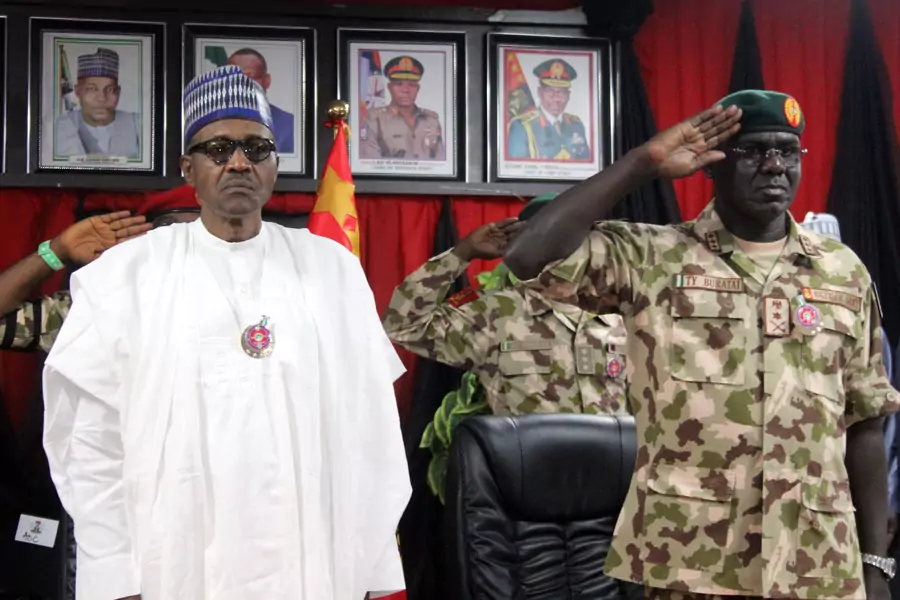Buhari's Dictatorial Past and the Rule of Law Today in Nigeria

In the immediate aftermath of the State Security Service’s invasion of an Abuja court room and its re-arrest of Nigerian journalist Omoyele Sowore, the Lagos daily newspaper the Punch announced that it will prefix President Muhammadu Buhari’s name with his military rank, Major General, and will refer to his administration as a “regime,” until “they purge themselves of their insufferable contempt for the rule of law.” In its announcement, Punch draws parallels between Buhari’s government and his “ham-fisted military junta in 1984/85,” when he was military chief of state. For Punch the “regime’s actions and assaults on the courts, disobedience of court orders and arbitrary detention of citizens reflect the true character of the martial culture.” The Punch announcement also attacks the military and the police because they “fail to understand that peaceful agitation and the right to associate are fundamental rights.”
In addition to Sowore, Punch refers specifically to the detention of the leader of the Islamic Movement of Nigeria, Ibrahim el-Zakzaky, and his wife, and of former National Security Advisor Sambo Dasuki, all in violation of various court orders. It also refers to various governors that have sought to curtail media freedom and the right to demonstrate. Punch claims to be the largest circulation daily in Nigeria. In addition to the daily, it publishes Saturday Punch, Sunday Punch, Punch Sports Extra, and digital platforms, of which the best known is Punchng.com.
More on:
During the period of military rule, Punch was known for its democratic and human rights activism. The military closed it three times and imprisoned its editor and deputy editor. It remains to be seen how the Buhari government will respond. The newspaper is based in Lagos, and it and its readership has long been critical of northern Nigerian governance. Its criticism of Buhari is not surprising, but it is worth noting that Zakzaky and Dasuki are both northern Muslims. What is different this time is the parallelism between military rule and Buhari’s civilian administration. Buhari’s supporters are likely to find the Punch stance infuriating. Nigeria’s foreign friends will be hoping that the government takes no move to limit Punch’s freedom of expression. The SSS assault on a court room and the re-arrest of Sowore has already damaged the country’s international reputation.
More on:
 Online Store
Online Store